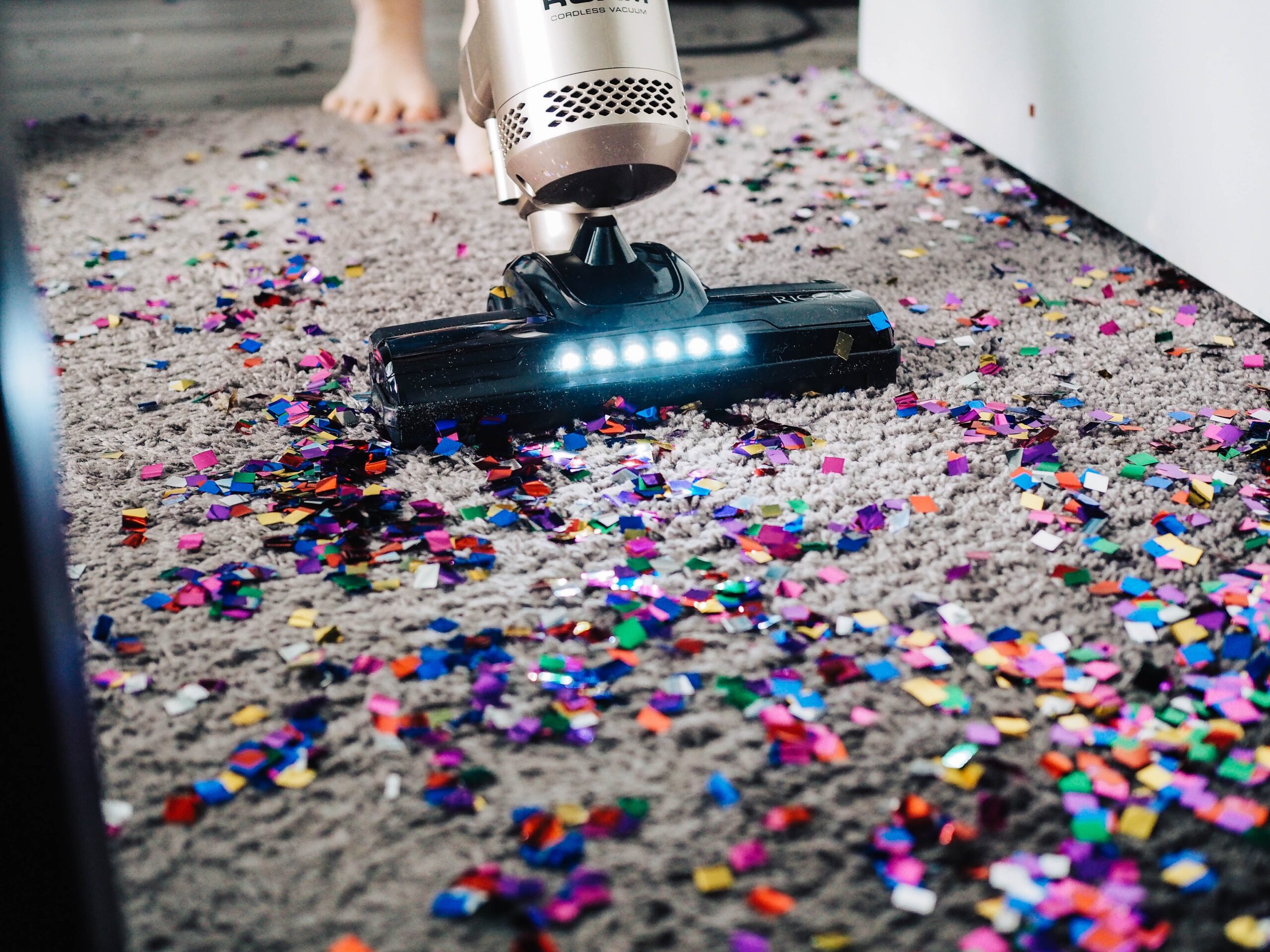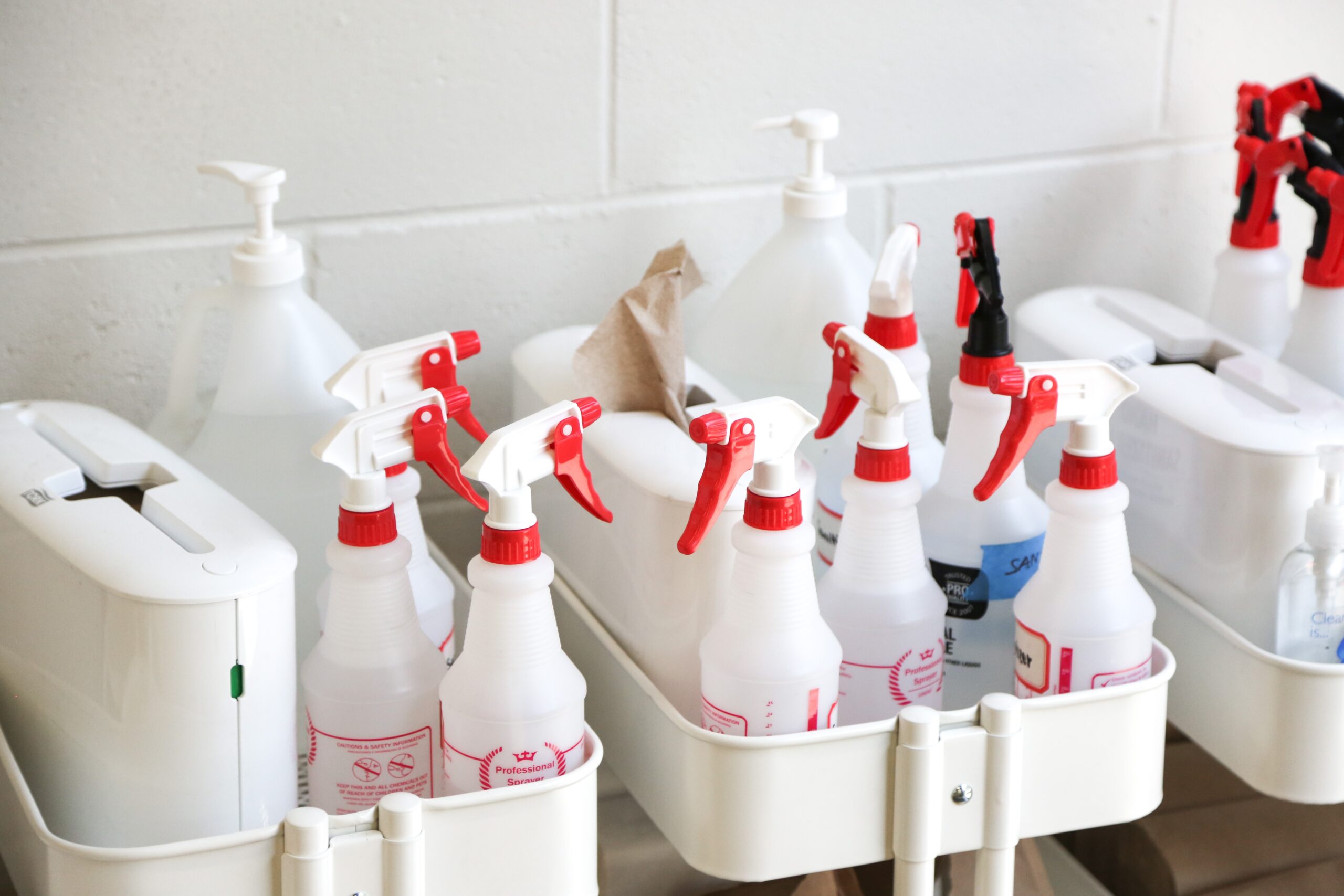Have you reached a point of exhaustion in your never-ending battle against the clutter in your home? The problem is that getting rid of clutter is challenging. There are instances when it is even more difficult than organizing. You may have difficulty letting go of something because you are holding out hope that you may need it in the future. You may be the kind of person who might use that thing. Or, is it possible that the object in issue was a gift, and as a result, you’re experiencing a sentimental attachment to it? Or is it possible that you simply lack the motivation to clear things out in the first place?
Many people in this day and age report feeling overwhelmed by the amount of stress they are under. However, many of us are unaware of how our routines can be adding to our stress and nervousness. One potential source of anxiety is the presence of clutter and disarray. After all, clearing away clutter not only makes it simpler to find what you’re searching for but can also boost your mood and mental condition in a variety of other ways.
What is Decluttering?
The term “decluttering” refers to the process of removing things from a space that you no longer require to make that space more aesthetically pleasing and practically usable.
What Is the F.A.S.T Decluttering Method?
F (Fix A Time)
Set a time that works for everyone who will be participating. Since cleaning up is something that needs to be done by the whole family, it is important to get everyone on board by planning your kick-start at a time that is convenient for everyone and requiring that they all be there. To get the process started, set aside some time on a weekend day like Saturday or Sunday, or commit some time each day.
A (Anything Not Used Within a Year)
If you haven’t used something in the past year, it’s highly improbable that you need it, and it’s even less likely that you’ll ever get enough use out of it to justify keeping it around your home when you don’t even use it. Do what needs to be done and get rid of it.
Keep in mind that the goal is to reduce the amount of stuff in your home, not simply to relocate it into a different space. You are going to be astounded by the sheer volume of objects in your home that are not being utilized and that are not required. You shouldn’t waste your time coming up with excuses to keep these things.
S (Someone Else’s Things or Possessions)
It is terrible enough to have your clutter, but it is completely insane to have someone else’s mess. Your residence should be devoid of anything that does not rightfully belong to you. You are obligated to return whatever that was borrowed from you. If you are currently going through a divorce or have recently terminated a relationship, now is the time to get rid of your former partner’s possessions. It is time for your children to pick up their belongings if they have successfully established their residences.
T (Trash)
You should think of the garbage can as a buddy. It is a good friend of yours who is hungry. Be proud of how much garbage you produce and try to make it into a game. Have a contest among your relatives to see who can get rid of the most things or provide a gift to the person of the clan who is most effective at getting rid of things. Keep in mind that you only want to keep the number of belongings that are appropriate for the space you have available to you.
Why Is It Important to Decide What to Declutter?
Before beginning the decluttering process, it is necessary to determine what you hope to accomplish. Do you wish to declutter your house and make more room? Or are you simply trying to clear the clutter off the surfaces of your kitchen countertops? You’ll be able to concentrate your efforts and get the most out of your time if you first determine what it is you want to accomplish.
Imagine that you are arranging a trip; you wouldn’t just get in your car and start driving without first determining where you want to go, would you? Similarly, if you have a distinct idea of what it is that you want to accomplish, you will be able to approach the process of decluttering with a sense of direction and determination.
How to Determine What Needs Decluttering
You are well familiar with the frustrating and overwhelming sensation that clutter may cause. You are aware of the feelings of guilt and embarrassment that it can generate, as well as the difficulty in maintaining a tidy home when it is cluttered. When you’re surrounded by chaos, you start to feel uneasy and unsettled.
On the other hand, because you are unable to rest, you feel too fatigued to clear away the clutter. Even worse, you start to believe that you are deserving of living in such a manner. You don’t.
You should have a pleasant place to live that fills you with a sense of pride. You are deserving of a haven of your own where you can unwind and spend time with the people you care about. Therefore, let’s talk about the factors preventing you from identifying what constitutes clutter and removing it from your home.
Are You Still Able to Use It?
If you use something frequently, it is not considered clutter; yet, it may be sitting out since it is an inconvenience to put it away. Find a storage space that is easier to access. Do not store it in a container if it is something that you use regularly. When you are in a hurry, you won’t even bother putting anything away. Make room on shelves for it or choose a vertical storage solution that will keep it accessible.
Does it Need Repair?
The urge to fix things is only beneficial if it is followed through with. In that case, there is no use in continuing to keep broken objects. The same is true for projects that have not been completed. You would have rectified it or completed it by now if it were helpful or necessary in your life. It’s clutter, therefore get rid of it or designate a separate area for things that need to be fixed or completed, whichever comes first.
Examine the contents of that drawer once every month. Throw anything away after three months if you still haven’t corrected it or finished working on it. You should remind yourself of this regularly by setting a reminder on your phone.
Is It Outdated or a Fad You Hope Will Revive?
Even when a certain look makes a comeback, it never quite seems the same. One excellent example is furniture from the mid-20th century. The things that were popular in the 1950s and 1960s are not comparable to the things that are popular today. It’s the same but with a new spin on it.
It would look out of place in your modern and contemporary living room if you placed Grandma’s sofa from 1956 there. To put it another way, the items that you’re holding out hope will make a comeback in fashion will never do. You shouldn’t keep those things around unless you’re running a museum out of your house.
Would Another Person Currently Love or Use It More?
Things that aren’t being used create clutter. Giving something to another person who could benefit from it is a great way to declutter your own space while also assisting the receiver.
Don’t hoard stuff that your grown children will eventually inherit. That is a hardship for you right now, as well as for them in the future. If you think someone else will enjoy it or find more use for it, give it to them now. It will make it easier for you to declutter, and it will offer them a voice in the decision to keep unwanted items out of their homes.
Do You Already Have Something Similar?
Disorganization is a waste of money. If you can’t locate anything, the solution is to purchase a replacement. Then you find yourself in the position of having duplicates, but you don’t want to get rid of one of them because you spent a lot of money on it. Do not use the fact that you paid for anything as an excuse to convince yourself to keep it. Make the decision that it’s just clutter, then get rid of it and bask in the glow of your accomplishment. You might also donate it and take the charitable contribution deduction.
Do You Only Keep It Because You Feel Guilty?
Our sentiments of guilt cause us to hoard two different kinds of clutter: things that we have purchased and things that we have obtained for free. Are you aware that there is a trap there? Because you feel like you should, you’re keeping items in your life that you don’t particularly care for. However, how can you be at peace while you are surrounded by things that make you feel bad?
Clutter You Purchased
Did you buy it on a whim to cheer yourself up while you were feeling down? Have you been coerced into doing it by anyone? Did you buy it to use it more frequently than you do? Or for a different iteration of yourself that you had wished you could become? The money is no longer available. You should conclude that it is clutter and then get rid of it, but you should remember the lesson to be more attentive about the purchases you make in the future.
Clutter You Acquired for Free or Gifts
It is tempting to keep unpleasant presents to spare the feelings of the person who gave them to you. However, if you do this, you will end up paying for the gift with your mental health. You have the right to decline to receive gifts that you won’t find useful or enjoyable. If you feel uncomfortable with it, you can take the present and give it to someone who will appreciate it. You do not owe every loved one the right to determine what goes in the gift space in your home, nor do you owe every gift space in your home to them.
Are You Merely Clinging to It Out of a Sense of “Just in Case”?
Do you save things you’re not utilizing on the off chance that you might require them at some point in the future? It is not always easy to let go of things, especially if they have the potential to be useful in the future. The ability to reframe a problem is often helpful. Therefore, rather than asking yourself if you might need something in the future, you should ask yourself if you can get by without it right now. Get rid of it if it’s something that can be replaced with little in the way of additional time or work.
A good rule of thumb is that if it costs less than twenty dollars or if you can buy a new one in less than twenty minutes, you should consider getting rid of the spare because it is merely clutter. You can easily obtain a new one if any of the scenarios you’ve envisioned come to pass. However, there is a considerable probability that you won’t ever require it; otherwise, you would have already discovered how helpful it is.
What if You Are Still Unsure if Something Is Cluttered?
Getting rid of clutter can seem like an insurmountable task. It’s not unusual to get to a point where you can’t decide if something should be kept or if it’s just extra clutter in your life. Your mental capacity has been exceeded, and you require a rest break. That is to be expected. If this takes place, the following actions should be taken:
Place It in a Box and Date-Mark It
Put whatever it is you can’t determine what to do with inside a box and close it up until you’re ready to decide it. The box should then be stored someplace that is out of the way, such as your garage, basement, or another location.
In conclusion, mark a reminder for a future date on your calendar that is at least a half year away. Recognize that the object is a source of clutter if you haven’t required it or thought about it in that amount of time. Get rid of the thing.
Set It up Such That You Can See It Every Day
It might sound unusual but observing something regularly might help you determine whether or not it constitutes clutter. Your genuine feelings will be exposed when you are forced to continually wipe them down, clean around them, or move them out of the way.
You might conclude that it would look best displayed on a specific shelf or side table; in that case, position it there and have pleasure in using it. It’s also possible that you’ll conclude that you just can’t abide the object; in that case, you’ll know it’s clutter. Get rid of the thing.
What are the Benefits of Decluttering?
Improves Mental Health
The accumulation of an excessive amount of clutter frequently results in feelings of embarrassment, helplessness, and guilt. These feelings can snowball, making it difficult to find the motivation to deal with the clutter that has accumulated. If a person is already struggling with depression, living in a cluttered house might make their condition significantly worse. In many cases, it repeats itself. The more miserable you are, the more difficult it is to keep your home tidy and in order.
Getting rid of clutter is associated with an improvement in self-worth, the formation of good habits, and an increase in productivity. A clean and organized home can also enhance one’s quality of sleep, happiness, and relaxation, among other benefits.
More Space and Energy
Everything that we buy and bring into our homes requires some amount of our time, energy, and physical space. Even while some things are not worth it, there are usually things that are no longer serving their purpose for us and we might get by without them.
The more stuff we have, the more work there is for us to do in terms of cleaning, organizing, and managing those things. When there is a lot of clutter in the home, it takes more time, energy, and effort to try to remain on top of everything. When our storage spaces, such as closets and drawers, are cluttered with items that we do not use, we waste more time seeking the items that we require.
How disheartening is it when you are aware of what you should be looking for yet are unable to locate it? Getting rid of the things that we don’t use frees up space, gives us more breathing room, and enables us to concentrate on the truly important things.
Clears Your House and Your Mind
Your capacity to concentrate will suffer as a direct result of the confusion that is caused by clutter. In addition to this, it reduces the power of your brain to process information. Visual distractions, like clutter, can lead to cognitive overload and a decrease in working memory.
Clutter is a sort of visual distraction. When your environment is disorganized and cluttered, it might be challenging to focus or concentrate on what you’re doing in that location. When working in an environment that is ordered and free of clutter, people are less irritable, more productive, and better able to comprehend information.
Maintaining order in one’s life can be challenging for anyone. People who have ADHD, brain injuries, and/or a deficit or dysfunction in their executive function may find this test to be extremely challenging. To better manage day-to-day tasks and increase one’s capacity for time management, it is necessary to get rid of clutter and devise organizational methods for particular items, such as keys, mobile phones, and wallets.
A busy environment not only makes it difficult to work physically, but it also overwhelms the mind with an excessive number of stimuli. Taking care of the mountain of paperwork, as well as the piles of laundry, and organizing everything with care, helps to relax the mind.
Conclusion
There is no correlation between cleaning and decluttering. Cleaning eliminates the buildup of dirt. Getting rid of clutter means getting rid of items. A home that is devoid of clutter is much simpler to clean. Getting rid of the clutter in your home will make it appear cleaner, even if it isn’t cleaner. Start with getting rid of the clutter in your home if you have the impression that it is too crowded.
After getting rid of the clutter in a room, you should clean it. By switching between the two on a room-by-room basis, you’ll reduce your risk of burnout and be more motivated to keep your home clear of clutter. You’ll be all set once you’ve finished cleaning out your garage if you use the F.A.S.T. method.







